Fast track system to soothe asylum tensions
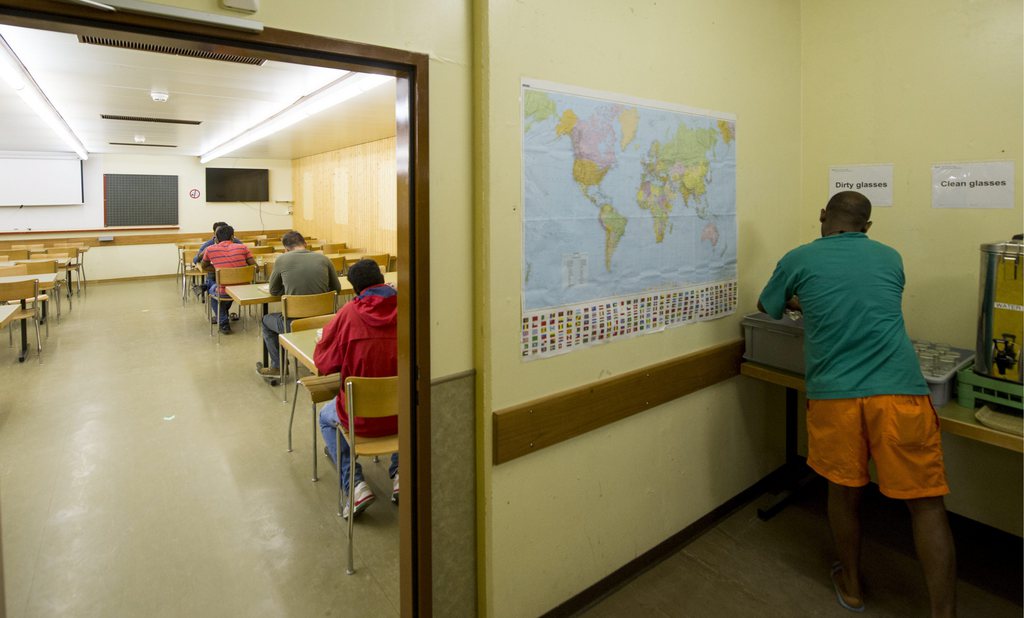
Faced with a rising number of asylum seekers, Switzerland wants to cut down the average application processing time to less than five months. swissinfo.ch looks at the success – and potential pitfalls – of speedier procedures elsewhere in Europe.
Compared with other European nations, the Netherlands has taken a number of radical steps to dramatically slash the time needed to process asylum applications.
Up until July 2010, asylum seekers to the country had just 48 hours to make their case and have it assessed. This fast track procedure was scrapped and replaced by a general assessment period of eight days.
It’s still not very long when compared to the amount of time given to the process in other countries, but the Dutch do not regard this as a fast track system.
In 2011, the Dutch Council for Refugees interviewed asylum seekers, lawyers and people directly involved in working with asylum seekers in reception centres to see how well the system was working.
In a report on their findings, policy officer Lenny Reesink describes a positive outcome: “after eight days asylum seekers know the outcome of their procedure. In other words they know whether their application is granted or rejected”.
The Swiss Refugee Council went to the Netherlands as part of a Swiss fact-finding mission in 2011 to see how changes had been put into action.
“Giving independent legal aid to all asylum seekers throughout the whole procedure was something that really impressed us about the Dutch system,” said Beat Meiner, secretary general of the Swiss Refugee Council.
“It’s crucial to a fair procedure, as what lawyers do is very influential. This is something that will change under the new Swiss pilot project…to have the government paying for legal aid instead of churches and NGOs will make a big difference.”
Time to prepare
The Dutch Council for Refugees’ research does however highlight concerns that asylum seekers may be interviewed too early in the process, on day three, albeit after a rest and preparation period of at least six days.
“This means there is a risk that asylum seekers with complex cases will not have enough time to prepare their cases. This may result in the rejection of the application,” said Reesink.
“The quality of the decisions was still very poor…medical issues were not taken into consideration and they were not entitled to assistance after their application was rejected”, she added.
Organisations outside of the Netherlands have been watching the development of the Dutch asylum procedure too.
“It all depends on the actual quality of the whole procedure,” Kris Pollet, senior legal officer at the European Council on Refugees and Exiles (ECRE) told swissinfo.ch
“It is at this stage, a bit too early days to make a final assessment of whether that eight day procedure in the Netherlands works or not.”
“Generally speaking, there are risks involved in that type of very fast procedure, the authorities have less time to really investigate the actual facts of the individual case, they have less time to consult country of origin information in order to try and make an assessment”.
Although the Swiss Refugee Council is pleased that asylum seekers will have access to paid-for lawyers during the pilot project in Zurich, they too believe more time is needed for a proper case to be built in more difficult cases.
“Ten days will be allowed for a lawyer to make an appeal against an official decision, but if the documents needed to prove a case are out of the country and hard to find, this won’t be long enough,” said Meiner.
If a decision cannot be made within the initial eight days, the case goes into the extended procedure, which should be resolved within six months.
Improving efficiency
Countries within Europe are working towards a collective asylum policy under the Common European Asylum System, but there remains a large diversity in policies, theory and practice among the different countries.
Some countries have seen major increases in applications in recent years; but they still have the flexibility to trial different ways of dealing with this.
An approach that a number of countries have been trying out is ‘frontloading’ of the process. Sweden is one such location where they trialled a project to speed up the asylum system, as it was taking ten to 12 months before this point.
The Swedish Migration Board tested out working under the ‘lean methodology’ in 2009. It’s a system adopted by many private companies and public bodies around the world to improve efficiency by re-allocating resources to the most important areas of their work, getting rid of bottlenecks and overlaps.
A key change was to hold an interview with the asylum seeker early on, using more staff at this initial stage rather than later.
“We think it does make sense to invest sufficient time and resources to have a specialised first instance asylum authority, in making sure that the first instance decision is a good decision, a right one,” Marcus Toremar, head of the Lean Centre for the Swedish Migration Board, told swissinfo.ch
“That of course avoids all kinds of lengthy procedures afterwards in order to correct, if necessary, any mistakes that have been made. That is very much something we advocate for with governments across Europe,” Pollet commented.
The time to take an initial, first decision in Sweden was reduced to around two months.
“The times were cut quite dramatically,” said Toremar.
In 2012 Sweden received 43,945 applications, a 48% increase on 2011 with many coming from Syria. The processing time has now gone back up to around three months.“It was evaluated by the UNHCR, the UN Refugee Agency…I think there is a consensus that we brought the asylum process forward, if we talk about it as a whole, in Sweden,” Toremar told swissinfo.ch
In an ideal world
Asylum and the location of centres to house applicants are highly controversial issues in Switzerland. A number of communities have protested centres being built due to concerns over security and a perceived connection to crime.
The accommodation has come under fire, with a federal centre in Geneva being described as similar to a prison in a national report in 2012. The use of underground army barracks often without windows and in remote, rural locations has also raised questions.
In June, voters confirmed changes already put into place by Parliament, including scrapping asylum requests at Swiss embassies abroad and refusing in principle giving protection to conscientious objectors.
From January 6, Switzerland will be testing a faster process in Zurich, with a new federal asylum centre for 300 applicants. The aim will be to process each case in less than five months.
Thirty case workers from the Federal Office of Migration will work on the projects for the fast track system.
“If a decision can be taken within six months, I think that’s the ideal situation,” said Pollet.
“Provided that all the procedural safeguards, in terms of access to a personal interview, that there is good quality interpretation, legal assistance…if all that can be guaranteed, then of course there is nothing wrong, on the contrary, with setting an objective of a first instance asylum authority to deliver a decision within that time frame.”
“In this current atmosphere, where public opinion on asylum seekers is very low and political parties exploit the issue for their own gains – if Switzerland can install this system it will be a sensational improvement,” said Meiner from the Swiss Refugee Council.
“Fast and fair procedures are better for everybody.”

In compliance with the JTI standards
More: SWI swissinfo.ch certified by the Journalism Trust Initiative
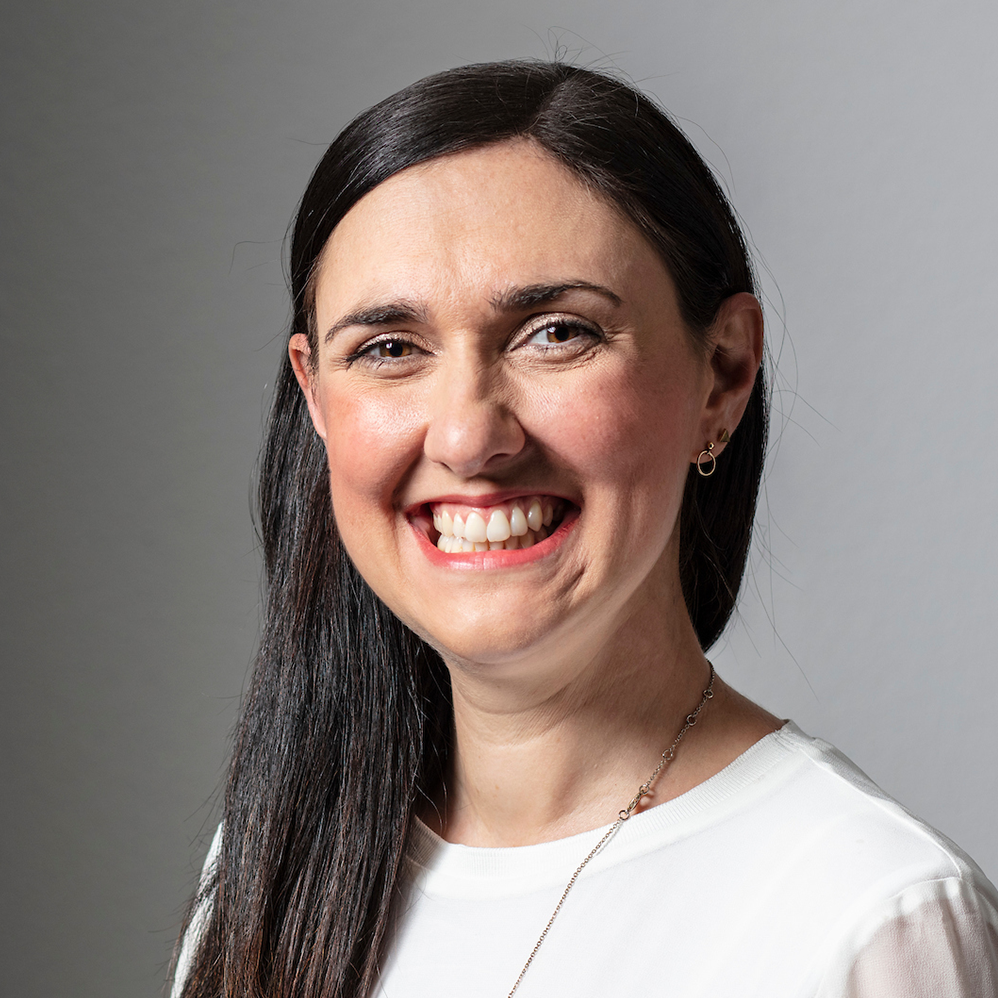
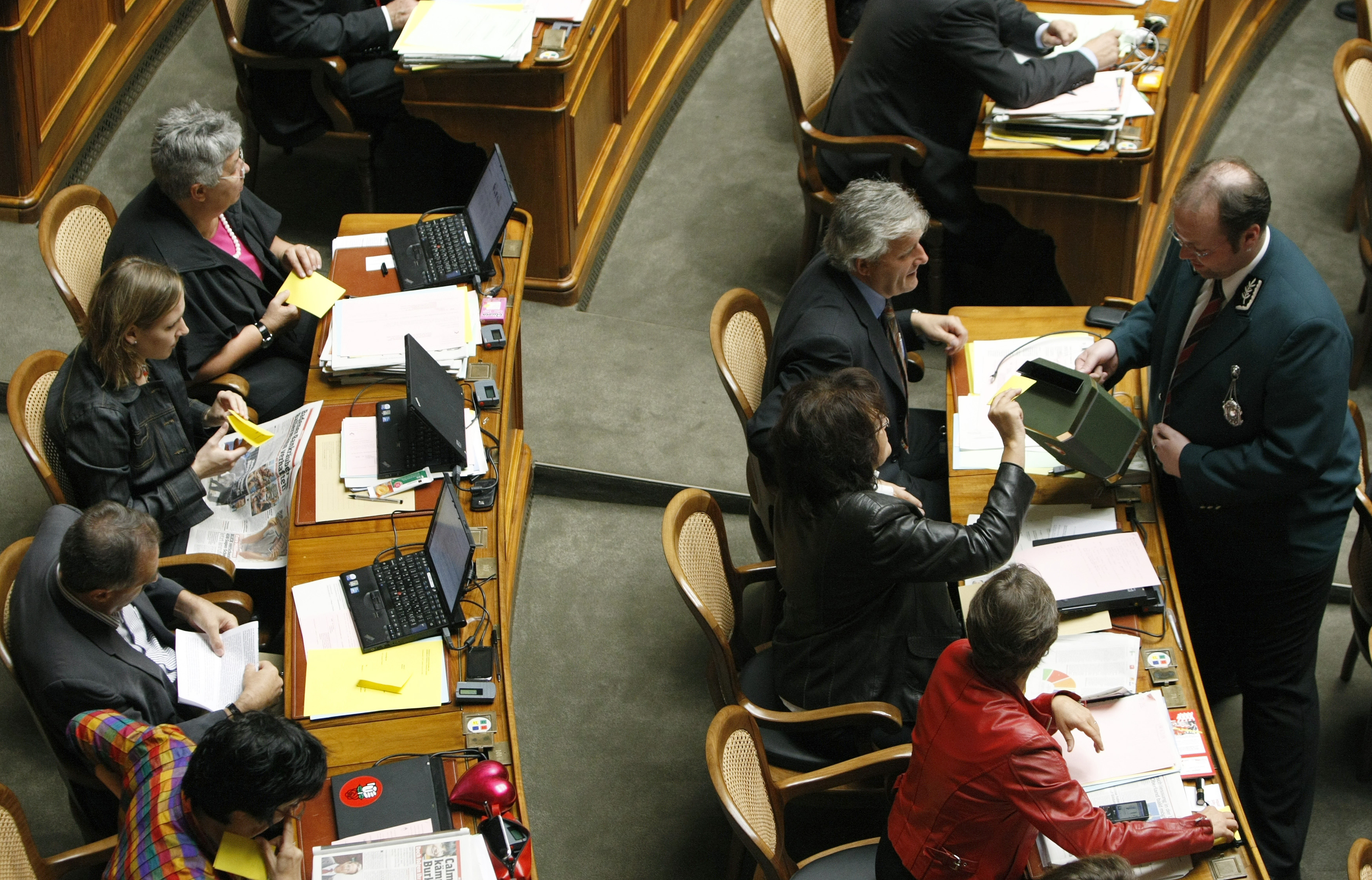
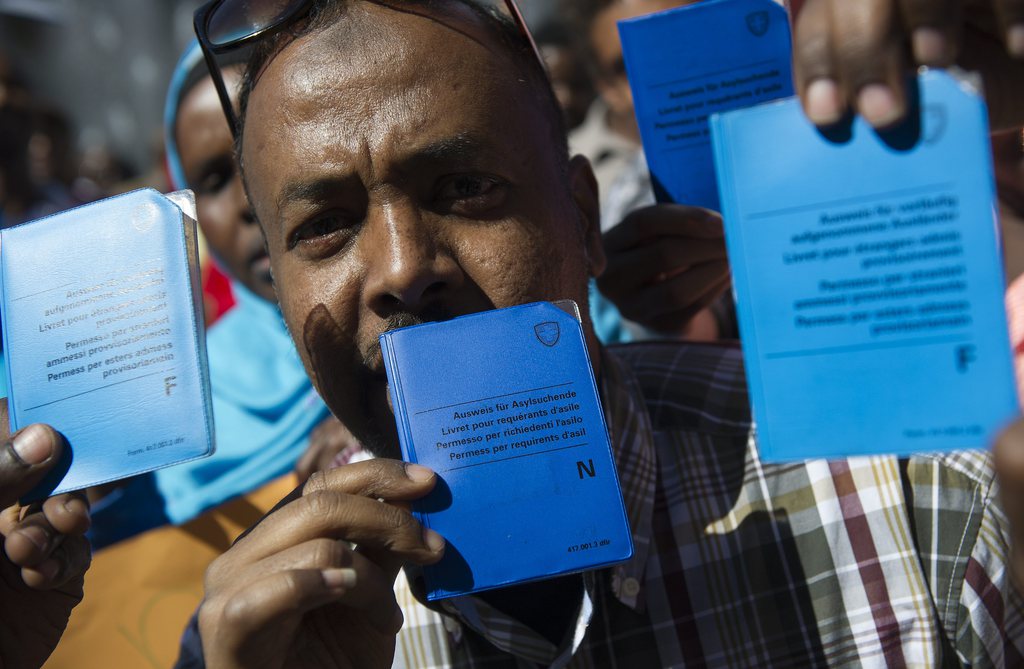
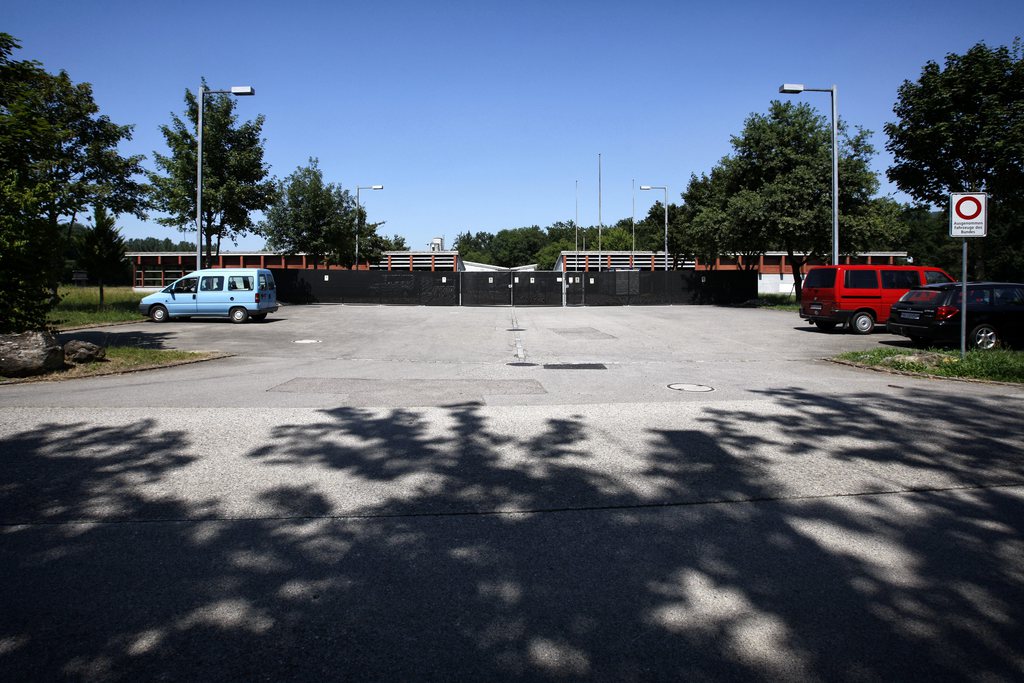
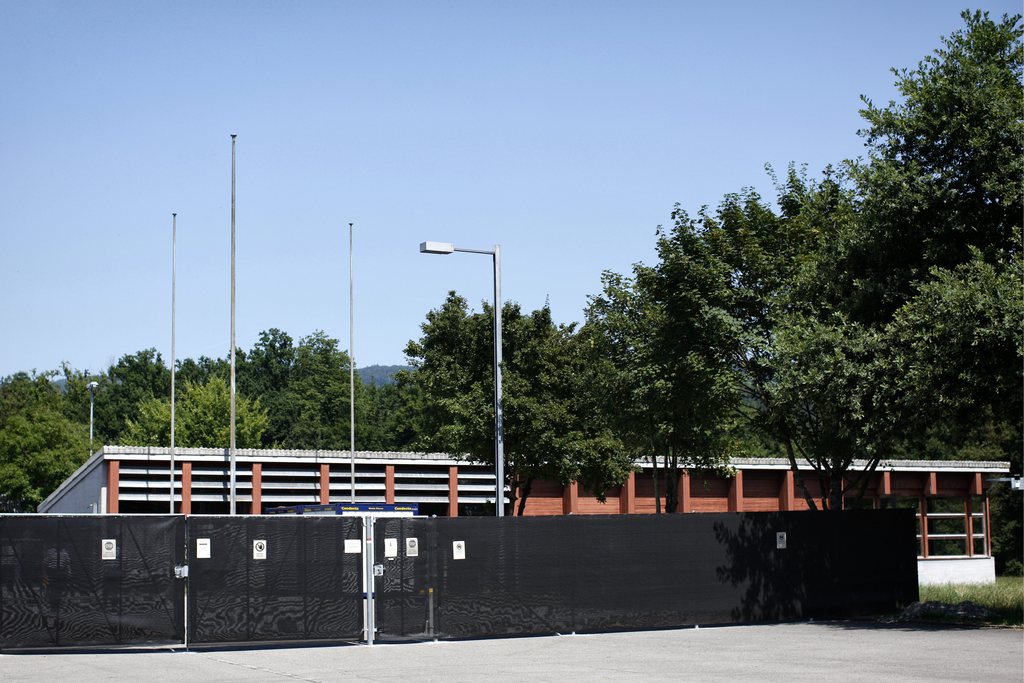
You can find an overview of ongoing debates with our journalists here. Please join us!
If you want to start a conversation about a topic raised in this article or want to report factual errors, email us at english@swissinfo.ch.